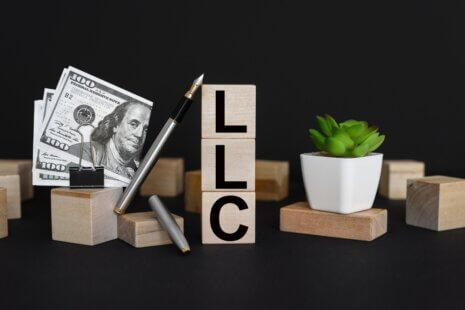The primary advantage of becoming a Limited Liability Company (LLC) entity is the limited liability protection it offers to its members (owners). Limited liability protection is a legal concept that separates the personal assets of the LLC’s members from the business’s debts and liabilities.
Here’s why limited liability is a significant advantage:
- Personal Asset Protection: When you operate as an LLC, your personal assets, such as your home, personal savings, and investments, are generally protected from business-related debts and legal liabilities. If the LLC incurs debts or faces legal claims, creditors typically cannot go after your personal assets to satisfy those obligations. Your liability is limited to the amount you have invested in the LLC.
- Reduced Risk: Limited liability protection reduces the financial risk associated with running a business. It allows you to pursue entrepreneurial endeavors and business opportunities with a level of security, knowing that your personal assets are safeguarded in the event of business-related issues or financial difficulties.
- Credibility and Professionalism: Forming an LLC can enhance the credibility and professionalism of your business. It signifies to customers, clients, and partners that you are operating as a legal entity with a clear separation between personal and business finances.
- Operational Flexibility: LLCs offer operational flexibility in terms of management and taxation. You can choose how you want your LLC to be managed, whether by its members (member-managed) or by appointed managers (manager-managed). Additionally, LLCs can elect different tax classifications, such as being treated as a disregarded entity, a partnership, an S corporation, or even a C corporation for tax purposes.
- Pass-Through Taxation: By default, LLCs are treated as pass-through entities for tax purposes. This means that the business’s profits and losses “pass-through” to the individual members, who report them on their personal tax returns. This can simplify tax reporting and potentially result in tax benefits for members.
- Ease of Formation and Administration: LLCs are relatively easy to form and maintain compared to some other business entities, such as corporations. The administrative requirements, record-keeping, and reporting obligations are generally less burdensome, making LLCs an attractive option for small business owners.
- Flexibility in Ownership: LLCs can have a flexible ownership structure, allowing for a single-member LLC or multiple members. Ownership can be easily transferred or divided among family members or partners.
While LLCs provide limited liability protection, there are still legal and financial responsibilities associated with operating an LLC, including compliance with state regulations and the need to maintain proper corporate formalities. Consulting with legal and financial professionals can help you understand the specific advantages and considerations related to forming an LLC based on your business goals and circumstances.




